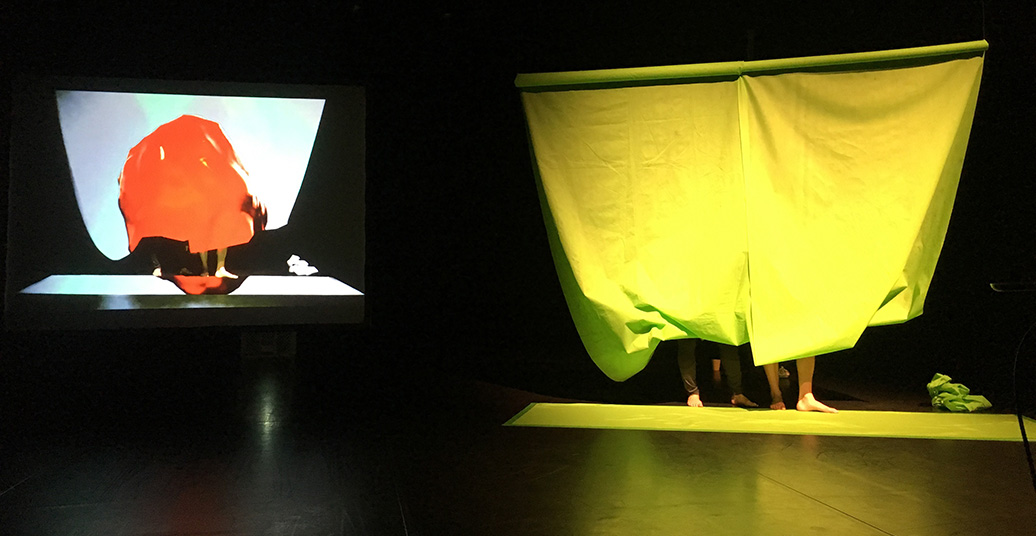From 21 to 28 September 2019 nine graduate students from the Dance, Context, Choreography BA programme at HZT, the Inter-University Centre for Dance Berlin, are showing their graduation works. They offer a glimpse not only into their own projects, but also into this rather special programme.
I arrive early at HZT, which has its home at Uferstudios, and make my way to the kitchen and bar area. Having studied here, I’m familiar with the campus and some of the students, but not all of them. I’ve already check the Facebook event to see who exactly is graduating: Nora Fuchs, Vilja Mihalovsky, Cajsa Godée, Katrine Staub Larsen, Suvi Kemppainen, Josefine Mühle, Lara Anais Martinez Wiesselmann, Simone Gisela Weber, and Dorota Michalak. I find Lara and Dorota in the kitchen, preparing vast amounts of food. I offer to help, and as we cook and clean, I realise they are cooking for the audience. I’m surprised not only by this generous gesture, but also by how relaxed they both seem about their upcoming graduation shows the following weekend. It’s so different from the tense atmosphere among me and my colleagues in the weeks before our own graduation presentations. But then, the BA programme is very different from the two-year programme I followed. The MA in Solo/Dance/Authorship consists of a smaller group of students and involves a large amount of independent study. The BA programme, meanwhile, takes up to 20 students a year, and the programme can take three to four years to complete. The students take intensive dance classes together, and group work is an important element of the course-work. This results in, what seems to me, an intimate atmosphere between the students, as the focus is on learning to create collectively. From independently organised festivals, to parties, to flea-markets, I’ve always admired the BA students for their ability to collectively build something beautiful within the framework of an academic institution.
I get my tickets and make my way to Studio 11 for Katrine Staub Larsen’s work “Evening for small scenes, singing, and playing”. The 40-minute performance is comprised of several short and ingeniously titled ‘acts’, performed by Katrine and her two collaborators Rosemarie Eberl and Peter Scherrebeck. Each act is infused with a kind of joyous beauty. There is dancing (actual dancing!) and the dancers are smiling (a surprisingly uncommon sight in much contemporary dance). There is something so refreshingly joyful, celebratory, and downright sincere about this series of small acts that I leave the work feeling uplifted.
Next, in Studio 8, is Cajsa Godée’s work “Amateur family dancing in experimental dance piece! (The Original)”. This tender and startling work is performed by a trio consisting of Cajsa and her parents, Ann Fagerell and Mats Godée in which they move through a series of scenes with a green screen and lots of dancing. At times it’s intentionally comic and smiley, at others it’s more nuanced and dark. I’m struck by the very complex kinds of intimacies between these three bodies, which are connected in a very particular way. The work triggers so many thoughts about family, my own parents, and the extreme vulnerability of dancing together. I’m unsettled by it, in a very good way.
Perhaps there was just something special about the night of performances that I went to watch, but it seems to me that the ability to work together has contributed to each individual artistic voice. The warmth and generosity I detected between the students is a rare and special feeling. I’ll come back next weekend to watch more, and I think you should, too.




